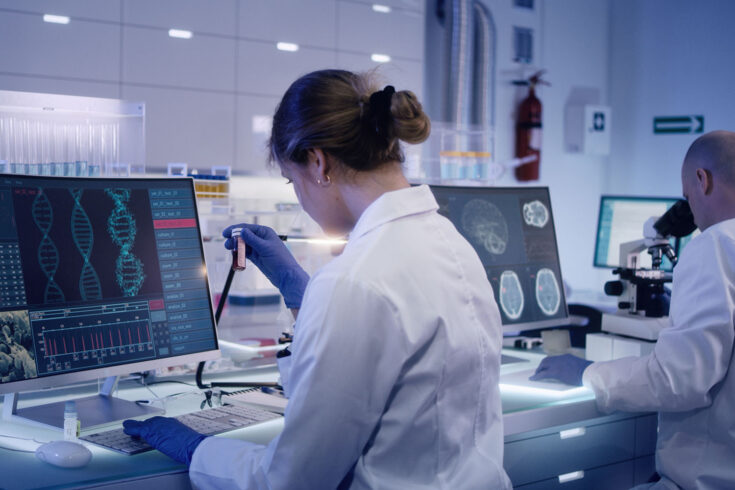The world’s largest single release of genetic data will help scientists better understand and treat diseases like cancer, heart disease, and dementia.
Whole genome sequencing (WGS) data for 200,000 UK Biobank participants has today been made available to approved researchers through a secure digital system.
It is the largest release of such data, so far, anywhere in the world and cements the UK’s place at the forefront of the life sciences industry. When combined with the extensive amount of lifestyle, biochemical and health data already held for the participants in UK Biobank, it will help researchers:
- better understand the impact of genetics on health
- identify new and better treatments.
World-leading resource
Established in 2006, UK Biobank follows the health of 500,000 participants from across the UK and has already developed a world-leading resource. This is contributing to more than 3,000 research studies in more than 90 countries.
Drugs supported by genetic evidence are twice as likely to treat patients effectively. Genetics will also help doctors identify patients who may be at higher risk of developing side effects to existing or new medicines.
Collaboration
The sequencing programme has only been made possible through collaboration between government, industry, and charity in a project that showcases the strengths of the UK life sciences industry.
UK Biobank has been supported by £200 million of funding from UK Research and Innovation (UKRI), Wellcome and a consortium of industry partners:
- Amgen
- AstraZeneca
- GlaxoSmithKline (GSK)
- Johnson & Johnson
- with the sequencing carried out by the Sanger Institute and deCODE.
Sequencing programme on track
Despite the challenging conditions caused by the COVID-19 pandemic, the sequencing programme remains on track to sequence all 500,000 participants in UK. Data on the remaining 300,000 participants is expected to become available to be released in early 2023.
WGS data will also help identify patients with a higher than average risk of developing conditions because of their unique genetic make-up, using genetic ‘risk scores’.
This will allow healthcare to take a much more personalised approach with patients, supported by preventative strategies, like lifestyle changes or targeted screening. This means that diseases could be either avoided, delayed, or detected at the earliest stages when treatment is most effective.
Improving health
Professor Dame Ottoline Leyser, Chief Executive at UK Research and Innovation said:
The UK Biobank programme demonstrates how transformative science can be delivered much more rapidly by working in partnership. Through the data to early diagnosis challenge, UKRI is proud to have co-invested in this ambitious programme which has delivered an unprecedented data resource to accelerate the application of genomics to improve health.
Enabling breakthroughs
Professor Sir Rory Collins, Principal Investigator at UK Biobank, said:
Sequencing at such a large scale and speed would not have been possible without the long-term vision of UKRI and Wellcome, the support of the industry consortium, and the expertise of the sequencing teams.
The WGS project will make UK Biobank the most detailed genomics database in the world and by sharing these data with the global research community our aim is to enable breakthroughs in understanding, diagnosis, prevention and treatment strategies for a range of common and life-threatening diseases.
Pivotal moment for scientific research
The Chair of the Joint Steering Committee, Letizia Goretti, representing Johnson & Johnson Innovation on behalf of the industry consortium parties, Amgen, AstraZeneca, GSK and Johnson & Johnson, said:
We are all incredibly proud of contributing to the creation of the largest whole genome sequencing data set in the world. These data, combined with the extensive lifestyle, biochemical and health outcome data already available, makes the UK Biobank an increasingly powerful resource for understanding the genetic architecture of diseases and accelerating drug discovery and development.
It is a truly pivotal moment for scientific research aimed at improving human health.

